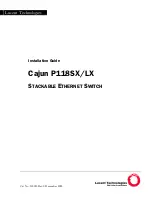
reply dscp
To specify the differentiated services codepoint (DSCP) value used in echo reply packets, use the
reply dscp
command in the appropriate configuration mode. To return to the default value, use the
no
form of this
command.
reply dscp dscp-bits
no reply dscp
Syntax Description
Differentiated services codepoint (DSCP) value for an echo reply packet. Valid values
are from 0 to 63.
Reserved keywords such as EF (expedited forwarding) and AF11 (assured forwarding
class AF11) can be specified instead of numeric values.
dscp-bits
Command Default
No default behavior or values
Command Modes
IP SLA MPLS LSP ping configuration
IP SLA MPLS LSP trace configuration
IP SLA MPLS LSP monitor ping configuration
IP SLA MPLS LSP monitor trace configuration
Command History
Modification
Release
This command was introduced.
Release 3.4.0
This command was added to IP SLA MPLS LSP monitor ping and
monitor trace configuration modes.
Release 3.5.0
Usage Guidelines
Use the
reply dscp
command to set the DCSP value used in the headers of IPv4 UDP packets sent as echo
replies in an MPLS LSP ping or MPLS LSP trace operation.
The DSCP value consists of the six most significant bits of the 1-byte IP type of service (ToS) field. These
bits determine the quality-of-service (QoS) treatment (per-hop behavior) that an transit LSR node gives to an
echo reply packet. For information about how packets are classified and processed depending on the value
you assign to the 6-bit DSCP field, refer to
“
The Differentiated Services Model (DiffServ)
”
at the following
URL:
http://www.cisco.com/en/US/products/ps6610/products_data_sheet09186a00800a3e30.html
If the
reply dscp
command is used in IP SLA operation mode, it acts on the headers of echo replies for the
specific operation being configured. If the
reply dscp
command is used in IP SLA MPLS LSP monitor mode,
Cisco IOS XR System Monitoring Command Reference for the Cisco XR 12000 Series Router, Release 4.1
OL-24735-01
205
IP Service Level Agreement Commands
reply dscp
















































